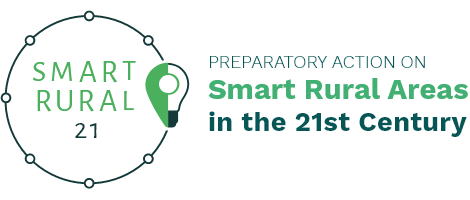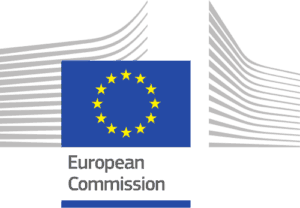What’s happening in my country
Hungary
This page contains specific information about the planning and implementation of smart villages in Hungary. The information aims to orient people on policy planning, key contacts and resources on smart villages. However, it neither aims to be fully comprehensive, nor necessarily reflects the official government or European Commission position.
Explore how smart villages are being implemented in Hungary.
Key CAP contact(s) :
Support for Smart Villages under the Common Agricultural Policy (CAP)
- The SWOT and needs assessment in relation to the future CAP Strategic Plan have been prepared and the elaboration of the CAP measures has started. Sectoral participation was coordinated by the Agricultural Chambers through organising subsectoral working groups (with the participation of invited stakeholders).
- No specific planning on Smart Villages is currently underway. It is not clear through which measures smart villages will be supported within the future CAP Strategic Plan. Generally, rural development measures of the future CAP benefitting rural communities are expected to be similar to those of the current Rural Development Programme (e.g. village tourism, etc.).
- The cooperation measure might be one of the measures through which Smart Villages will be supported. LEADER will be kept at the compulsory 5% level, which means, that in absolute terms its budget is expected to decrease, due to a decrease in Pillar II budget.
Further information on CAP & smart villages :
Key NRN contact(s) :
Key contact(s) :
Support provided through other national/ regional policies & initiatives
- It is possible, that some participatory development elements will be included into the next programme within ERDF through the CLLD tool, similar to its present form, i.e. used as an urban grants scheme coordinated by the municipalities. Furthermore, integrated approach is also covered by ITI (Integrated Territorial Investments).
- Ministry of Innovation and Technology (ITM) is the coordinating the planning on digital support and interventions. The Digital Wellbeing Non-Profit Company (Digitális Jólét Nonprofit Kft.) was established by the Hungarian Government to enhance “digital wellbeing”. The company elaborated several digitally focused programmes, and the creation of a Digital Village Programme was announced in November 2020. The programme will support pilot projects through national budget.
- The Ministry of Agriculture elaborated a Digital Agricultural Strategy, supported by national funding, that concentrates on precision agriculture, data collection and computer literacy of farmers.
Key organisations & contacts
An association consisting of 60% of the Hungarian Local Action Groups (LAGs) and led by LEADER activists.
Key activities :- Organising discussions and meetings of LAGs
The organisation, established in August 1989, works to preserve Hungarian small villages.
Key activities :- Organisation of events, meetings, trainings.
- Organisation and operation of various village development programmes and projects.
- Preparation and management of a ‘Village Development Prize’.
The association, founded in 2013, is an influential in terms of policy development, its membership covering 50% of Hungarian settlements.
Forty member settlements have set up a club and have started to exchange on the ‘smart village’ concept. They organise meetings and share information on the topic.
Key activities :- Operation of the ‘Innovative Villages Club’
- Organisation of discussions on the ‘smart village’ concept
Further key resources
Miklós Maacz - Hungarian Ministry of Agriculture ( 11/05/2023 )
During the 1st European Smart Villages Pilot Observatory meeting on May 11th, Miklós Maácz from the Ministry of Agriculture of Hungary presented on “Smart Villages in the CAP Strategic Plans: How to support the implementation of Smart Villages CAP interventions.
Language : English
Klára Hőss - Alsómocsolád ( 11/05/2023 )
During the 1st European Smart Villages Pilot Observatory meeting on May 11th, Klara Hoss from Alsómocsolád, Hungary, presented on the topic “Rural Communities and Smart Villages: How to support rural communities in developing and realizing Smart Village strategies using the practice of knowledge clusters.”
Language : English
( 09/07/2018 )
A video with Hungarian subtitles produced by the ENRD Contact Point summarising what a ‘smart village’ represents from different perspectives.
Language : English, Hungarian
Géza Gelencsér ( 05/11/2021 )
A presentation given at the 2nd Regional Workshop of the Smart Rural 21 project on the smart vision of Uppony, one of the project’s 21 selected villages.
Language : English
József Káposzta , Patrícia Honvári ( 2019 )
A study published in the ’Space and Society’ scientific journal.
Language : Hungarian
Hungarian National Rural Network , LEADER LAGs Association (LESZ- Leader Egyesületek Szövetsége) ( 03/06/2016 – 04/06/2016 )
A one-day event was organised for rural development stakeholders, Local Action Group (LAG) representatives and policy makers. Among others, the ‘smart village’ concept was presented and a dedicated thematic workshop was held.
Language : Hungarian
Alsómocsolád ( 2021 )
The Smart Village Strategy of Alsómocsolád, a Come Along! village of the Smart Rural 21 project.
Language : Hungarian
Ádám Szalai , Szabolcs Fabula ( 2021 )
A study providing an extensive analysis of the concept of ‘smart village’, the changes observed in the interpretation of the term, and the results an empirical research on the feasibility of smart projects.
Language : Hungarian
Hungarian National Rural Network , Village Development Association (Falufejlesztési Társaság) ( 02/2020 – Ongoing )
The Academy is held quarterly with the aim of highlighting and transferring good practice examples and experiences of rural development from Hungary and abroad. The main topics include: management education; tourism development; branding of settlements and micro-regions; land and real estate development; local product development; innovation; agricultural management. The Academy is intended for village leaders, representatives of enterprises, non-governmental organisations interested in village development, leaders of advocacy organisations.
Magyar Máltai Szeretetszolgálat (Hungarian Maltese Charity Service) ( 02/2019 – Ongoing )
A comprehensive programme to catch up the 300 most disadvantaged settlements in Hungary. A social inclusion initiative, the programme is centred on children and securing their main needs through various actions focused on early development, heating, sports, and play, among others.
Language : Hungarian
National Informatics and Library Association , Kecskemét Movie Ltd ( 05/10/2015 – Ongoing )
A national initiative providing online access to more than 750 Hungarian documentaries, films and animations to libraries of small settlements with 5 500 inhabitants or less. Additionally, villages can get support for the physical design of their libraries’ spaces to be able to organise the cinema screenings.
Language : Hungarian
Eötvös Loránd Tudományegyetem , Interindustria Knowledge Centre Foundation , Technical University of Košice ( 01/10/2020 – 31/01/2022 )
A Hungarian-Slovakian Interreg V project based on the premise that ’smartness’ is not the privilege of cities, but sustainable welfare could be also achieved in the countryside through the application of the latest technologies. The main goal was to support the smartness of rural settlements through the development of specific cross-border services, including a ‘Smart Village Compass’ and a catalogue of good practices, showcasing step by step the ‘smart’ actions villages can implement. In addition, the ‘smart database and helpdesk’ serves as a one-stop-shop, making all relevant and up-to-date information available in one place, connecting villages with relevant opportunities, as well as competent advisors.
Language : English
Ákos Jakobi - Eötvös Loránd Tudományegyetem ( 03/2021 )
A presentation given in the framework of the ’Smart Communities 2.0 – How to be smart in the countryside?’ Hungarian-Slovakian Interreg V Project.
Language : Hungarian
László Dicső , Péter Varga ( 09/2019 )
A study published in the ‘New Hungarian Public Administration’ scientific journal.
Language : Hungarian
Mátyás Gáspár ( 09/2019 )
A study published in the ‘New Hungarian Public Administration’ scientific journal. The study examines the concept of ‘new localism’ as a wider framework for smart village and rural area development.
Language : Hungarian
Association of Hungarian municipalities (TÖOSZ) ( 11/03/2019 )
Meeting minutes of the TÖOSZ Innovative Villages Club. The meeting covered the topic of smart villages.
Language : Hungarian
László Dicső - Alsómocsolád ( 11/03/2019 )
A presentation on the ‘smart villages’ concept given at the meeting of the TÖOSZ Innovative Villages Club by László Dicső, mayor of Alsómocslád.
Language : Hungarian
Digital Welfare Programme Secretariat, Ministry of Innovation and Technology ( 11/2020 – Ongoing )
A short video overviewing the Programme whose aim is to improve the livability of small settlements through various digital and smart solutions, jointly with the Digital Welfare Programme
Language : Hungarian
Hungarian Prime Ministry ( 2020 )
A national scheme, including a list of measures on supporting the improvement of public services and the quality of life in rural areas.
Language : Hungarian
Hungarian Ministry of Agriculture ( 2019 )
A web page outlining the concept of ‘Agriculture 4.0’ as based on large-scale data, generated by technologies and sensors used in precision agriculture, as well as the elements needed to achieve efficiency gains. The page highlights Hungary’s Digital Agriculture Strategy and the Government’s Resolution on the promotion and coordination of the digitisation of Hungarian agriculture
Language : Hungarian
Municipality of Uppony ( 12/2020 )
The Summary Highlights of the Smart Village Strategy of Uppony has been developed in the context of the ‘Preparatory Action for Smart Rural Areas in the 21st Century’ project funded by the European Commission
Language : English
Márton Gosztonyi ( 27/10/2020 )
A presentation provided at the 1st Smart Village Academy of the Smart Rural 21 project about a local mobility project from Tomor (Hungary).
Language : English
Municipality of Uppony ( 12/2020 )
The Smart Village Strategy of Uppony has been developed in the context of the ‘Preparatory Action for Smart Rural Areas in the 21st Century’ project funded by the European Commission.
Language : English

